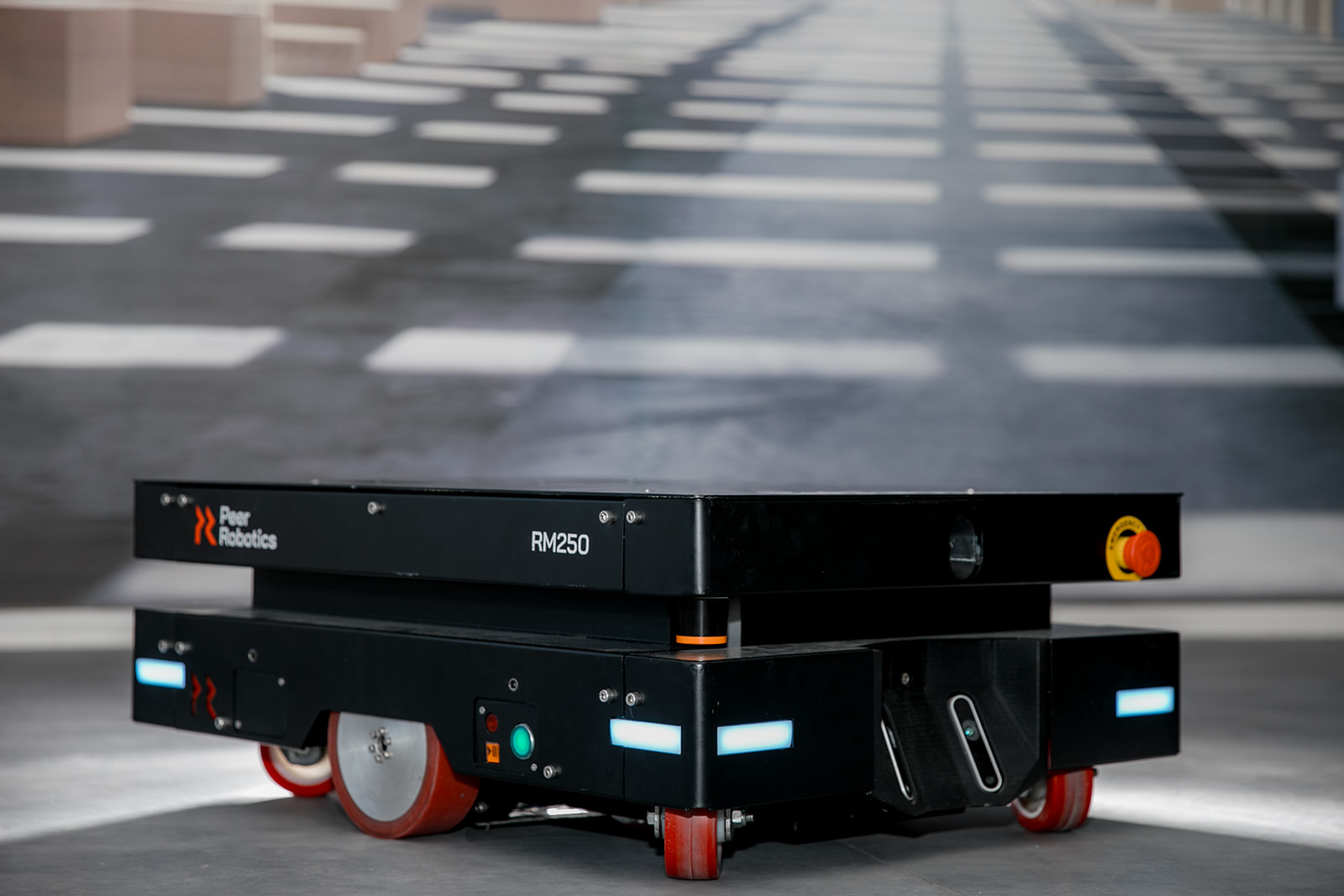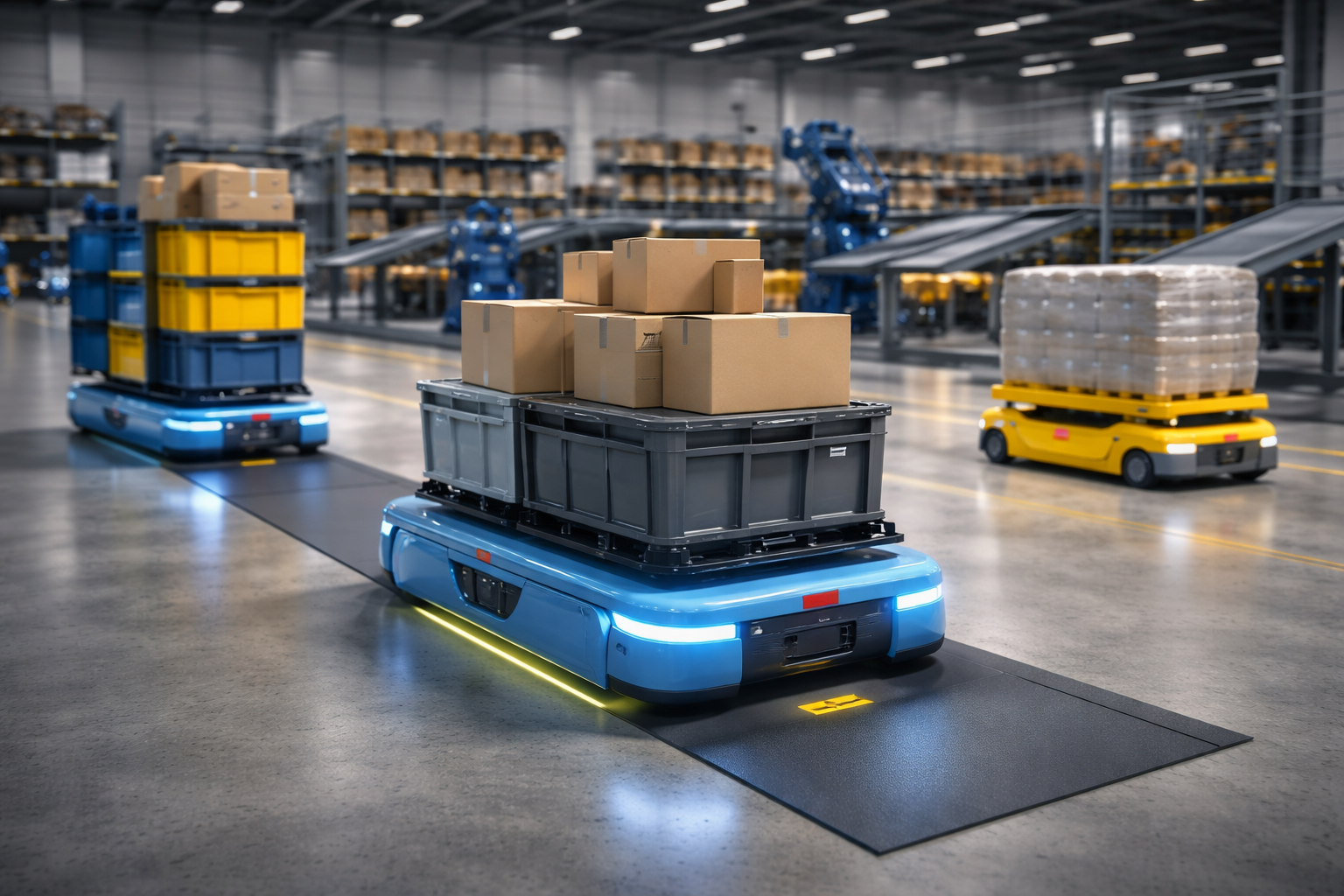Lithium-based batteries have revolutionized the way we power our modern world, from smartphones to electric vehicles. In the automation industry, especially in the context of mobile robots, these batteries have played a crucial role in enabling autonomous operations. However, despite their undeniable advantages, there are notable challenges associated with the use of lithium-based batteries both currently and in the foreseeable future.
The Role of Lithium-based Batteries in Modern Mobile Robot Automation Solutions
Lithium-based batteries have assumed a pivotal role in mobile robot automation solutions. These batteries serve as the primary power source for mobile robots, enabling them to perform a wide array of tasks efficiently. While we won’t delve extensively into their advantages in this section, it’s important to note that lithium-based batteries offer high energy density, lightweight design, and fast charging capabilities. These attributes contribute significantly to the enhanced operational capabilities of mobile robots, allowing them to operate seamlessly across various industries. In the subsequent sections, we will shift our focus to the challenges that arise with their utilization in this dynamic field.
Lithium-based Batteries vs. Lead-acid-based Batteries in Mobile Robotics
When it comes to powering mobile robots in the field of automation, Lithium-based batteries offer a significant improvement to lead-acid-based batteries in most parameters. Here’s why:
Operational Efficiency
Operational efficiency is a key factor in the performance of mobile robots. Lithium-based batteries excel in this aspect due to their higher energy density. They provide more power for longer periods, allowing mobile robots to operate continuously without frequent recharging. Lead-acid batteries, on the other hand, have lower energy density and may require more frequent recharges, resulting in potential downtime.
Maintenance and Logistics
Maintenance and logistics are crucial considerations in any automated operation. Lithium-based batteries require less maintenance, reducing the need for constant monitoring, watering, and cleaning that lead-acid batteries often demand. Additionally, lithium batteries are lighter, making transportation and handling more manageable.
Safety
Safety is paramount, especially when it comes to mobile robotics. Lithium-based batteries are generally considered safer than lead-acid batteries. They are sealed and less prone to acid leaks or spillage. However, lithium batteries do come with their own safety concerns, which we will explore in detail later.
Size
Size matters when integrating batteries into the design of mobile robots. Lithium batteries are compact and lightweight, allowing for flexible placement within the robot’s frame. This compact size optimizes space utilization and contributes to the overall efficiency of the robot.
Price
Cost is a significant factor to consider when choosing between lithium-based and lead-acid batteries. While lithium batteries typically have a higher initial cost, their total cost of ownership, which includes factors like maintenance, lifespan, and energy efficiency, may prove to be cost-effective in the long run. Lead-acid batteries, while cheaper upfront, may incur higher maintenance and replacement costs over time.
In the following sections, we will delve deeper into the challenges and considerations associated with lithium-based batteries in mobile robotics, with a particular focus on safety and how these challenges can be addressed moving forward.
The Challenges Lithium-Based Batteries Are Posing for the Industry
While lithium-based batteries offer numerous advantages, they also present several significant challenges for the automation industry, particularly in the context of mobile robotics. In this section, we will explore these challenges and their implications for the industry’s future.
Price
One of the foremost challenges associated with lithium-based batteries in the automation industry is their initial cost. This cost differential can be a significant hurdle for organizations looking to adopt or scale up their use of mobile robots powered by lithium-based batteries. Addressing this cost challenge will be crucial for wider industry adoption.
Logistics and Transportation
The logistics and transportation of lithium-based batteries demand careful attention due to safety concerns. Lithium batteries are susceptible to fire and thermal runaway if damaged or improperly handled during transport. Strict adherence to safety regulations and guidelines is essential to mitigate these risks, which can add complexity and cost to the logistics and transportation aspects of the automation industry.
Safety
Safety is a paramount concern when it comes to lithium-based batteries in mobile robotics. Several specific safety issues must be addressed to ensure the safe operation of mobile robots powered by lithium batteries. These include:
Short Circuit:
Short circuits in lithium batteries can lead to thermal runaway, fires, and even explosions. Implementing robust short-circuit protection mechanisms is crucial to prevent such incidents.
Overvoltage:
Overvoltage events can damage lithium batteries and pose safety hazards. Effective voltage regulation and monitoring systems are necessary to prevent overvoltage-related issues.
Overheating:
Lithium batteries can overheat under certain conditions, such as excessive charging or discharging. Overheating can result in damage to the battery and pose a safety risk. Implementing effective cooling and thermal management solutions is vital to prevent overheating.
In the following sections, we will explore potential solutions and strategies for mitigating these safety and operational challenges associated with lithium-based batteries in the automation industry. It’s essential to ensure the safe and efficient use of these batteries as they continue to power the future of mobile robotics.
Going Forward – What Can Be Done to Mitigate Challenges
In the face of the challenges posed by lithium-based batteries in the automation industry, it’s crucial to explore proactive measures and innovations to mitigate these issues and ensure a more sustainable and efficient future. Here are some key areas of focus:
Advances in Battery Technology for Mobile Robots
One promising avenue is the continuous advancement of battery technology tailored specifically for mobile robots. Researchers and manufacturers are actively working on developing lithium-based batteries with enhanced safety features, longer lifespans, and increased energy density. These innovations aim to address the current challenges and make lithium batteries an even more attractive and reliable option for mobile robot automation.
Regulatory Updates and Compliance for Mobile Robot Batteries
Staying up-to-date with regulatory standards and compliance requirements is essential. Regulatory bodies are continually revising and improving safety standards for lithium-based batteries used in mobile robots. Ensuring strict compliance with these standards is crucial to minimizing safety risks and fostering industry-wide confidence in the technology.
Will we see a new certification doing to the automation world what UL9540a did to energy storage systems?
Next Leap – Supercapacitor Technology
Another exciting avenue for mitigating challenges is the exploration of supercapacitor technology as an alternative or complement to lithium-based batteries. Supercapacitors offer rapid charging, high power density, and extended lifespan. While they have their own set of limitations, such as lower energy density compared to lithium batteries, they show promise in addressing some of the challenges associated with lithium batteries in mobile robotics.
As we look ahead, a combination of these strategies, along with ongoing research and innovation, can pave the way for a more secure and efficient future for mobile robot automation. By addressing the challenges and embracing new technologies, the automation industry can continue to leverage the benefits of lithium-based batteries while ensuring safety and sustainability in the long term.
In conclusion, the adoption of lithium-based batteries in the automation industry has ushered in a new era of efficiency and productivity. However, it is vital to recognize and address the challenges they pose, including cost considerations, logistical intricacies, and safety concerns. By embracing innovation, staying attuned to regulatory updates, and exploring alternative technologies, the automation industry is poised to conquer these challenges and pave the way for a brighter, more efficient future in automation.
FAQs:
- What is the potential impact of supercapacitor technology on automation?
Supercapacitors offer the potential for rapid charging, high power density, and longer lifespan compared to some battery types. They may serve as a complementary or alternative energy storage solution in automation, potentially mitigating some challenges associated with lithium-based batteries.
- Can lithium-based batteries be recycled, and what are the environmental implications of their disposal?
Yes, lithium-based batteries can be recycled. Proper recycling not only minimizes environmental impact but also recovers valuable materials. Incorrect disposal can lead to environmental pollution, emphasizing the importance of responsible recycling.
- Are lithium-based batteries suitable for all types of mobile robots in automation?
Lithium-based batteries can be suitable for a wide range of mobile robots, but their appropriateness depends on factors like the robot’s energy requirements, operational environment, and budget constraints.
Looking for a greener energy solution? Explore the innovative power delivery system offered by CaPow.




